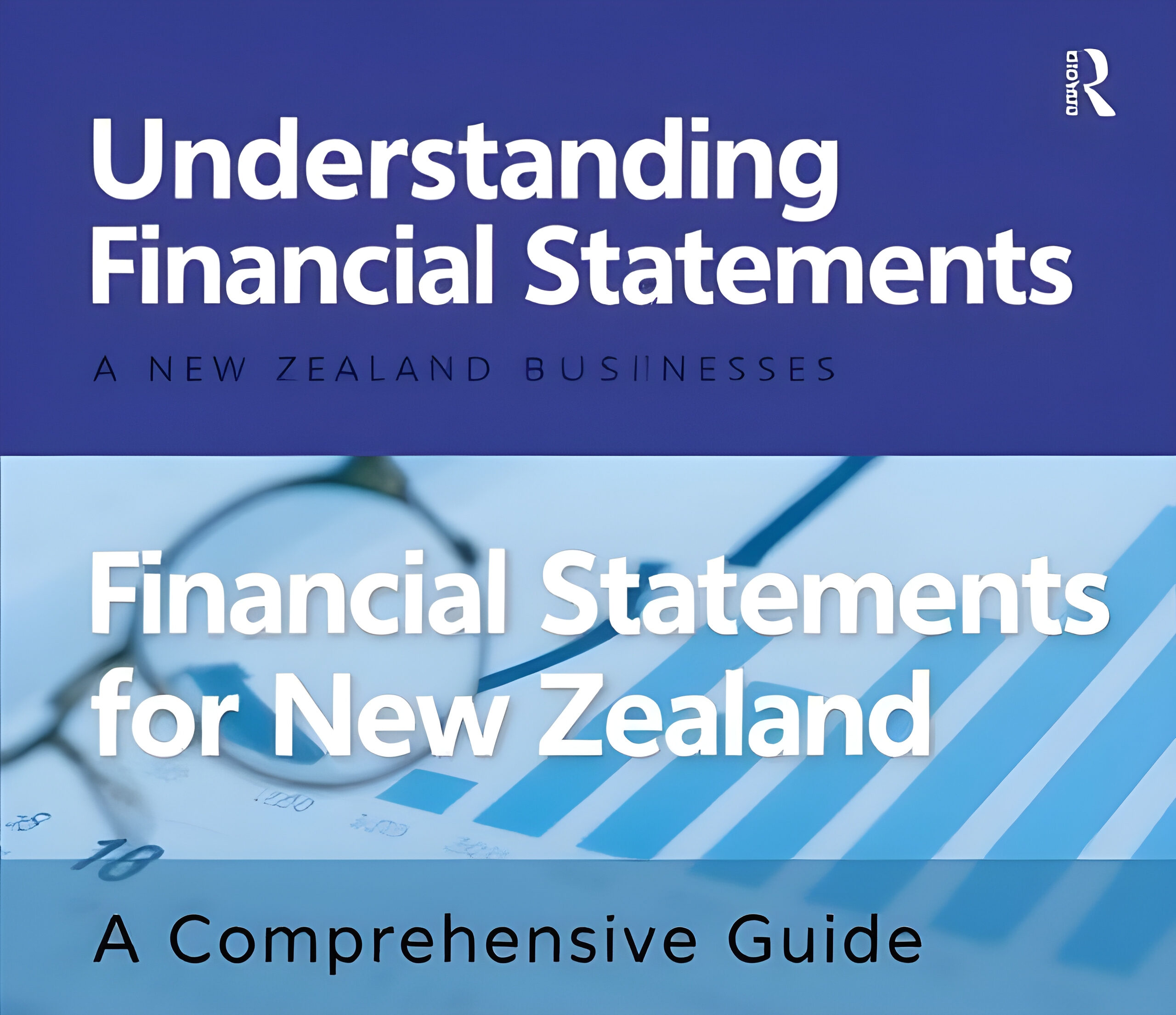In the dynamic world of business, understanding financial statements is crucial for managing a company’s financial health and ensuring compliance with regulatory requirements. For New Zealand businesses, particularly small and medium-sized enterprises (SMEs), having accurate and reliable financial statements NZ can make the difference between success and failure. These financial documents not only provide insights into a company’s profitability, cash flow, and financial position, but they also play a vital role in decision-making, securing investments, and maintaining transparency with stakeholders.
At Aurora Financials, we recognize that financial statements are essential tools that every business should understand and leverage. This article will explore the importance of financial statements for New Zealand businesses, how to interpret them, the key components involved, and the benefits they offer to business owners, managers, and stakeholders.
What Are Financial Statements?
Financial statements are formal records of the financial activities of a business. These documents provide a detailed overview of a company’s financial performance and position. In New Zealand, businesses are required to prepare financial statements to comply with accounting standards and tax regulations. Financial statements serve as the foundation for making informed business decisions, analyzing performance, and ensuring transparency.
The Key Types of Financial Statements
There are several essential types of financial statements that businesses in New Zealand use regularly:
1. Income Statement (Profit and Loss Statement)
The income statement, also known as the profit and loss (P&L) statement, outlines a company’s revenues, costs, and expenses over a specific period, typically a quarter or a year. It shows whether a business is profitable or incurring losses during that period.
The main sections of an income statement include:
- Revenue: The total income generated by the sale of goods or services.
- Cost of Goods Sold (COGS): The direct costs associated with producing or delivering goods and services.
- Gross Profit: The difference between revenue and COGS.
- Operating Expenses: The costs required to run the business that are not directly tied to production, such as salaries, marketing, and rent.
- Net Income: The final profit or loss after all expenses, including taxes and interest, have been deducted.
The income statement is one of the most critical financial statements NZ for assessing a company’s profitability and operational efficiency.
2. Balance Sheet
A balance sheet provides a snapshot of a company’s financial position at a specific point in time, detailing its assets, liabilities, and equity. It adheres to the accounting equation:
Assets = Liabilities + Equity.
Key components of a balance sheet include:
- Assets: What the business owns, such as cash, inventory, property, and equipment. Assets are typically categorized into current assets (short-term) and non-current assets (long-term).
- Liabilities: What the business owes, including loans, accounts payable, and accrued expenses. Liabilities are classified into current liabilities (due within one year) and non-current liabilities (due after one year).
- Equity: The owner’s interest in the business, which represents the difference between total assets and total liabilities. Equity includes retained earnings, paid-in capital, and any other owner investments.
The balance sheet is a critical financial statement NZ for evaluating a company’s financial health, liquidity, and solvency. It is often used by investors, creditors, and business owners to assess whether a business has enough assets to cover its liabilities.
3. Cash Flow Statement
The cash flow statement tracks the movement of cash in and out of a business over a specific period. Unlike the income statement, which accrues revenues and expenses, the cash flow statement focuses on actual cash transactions. It helps business owners assess their ability to generate cash and maintain liquidity.
The cash flow statement consists of three sections:
- Operating Activities: Cash generated or spent in the course of the business’s core operations, including receipts from customers and payments to suppliers and employees.
- Investing Activities: Cash flows related to the purchase or sale of long-term assets, such as property, equipment, and investments.
- Financing Activities: Cash flows related to borrowing or repaying debt, issuing or repurchasing stock, and paying dividends to shareholders.
The cash flow statement is vital for understanding the liquidity and cash management of the business, which is crucial for meeting short-term obligations and planning for future growth.
4. Statement of Changes in Equity
This statement outlines the changes in the equity section of the balance sheet during a specific period. It provides information about movements in retained earnings, share capital, and other equity-related accounts. This document helps business owners understand how profits or losses, dividend payments, and new investments impact the equity of the company.
The Importance of Financial Statements for New Zealand Businesses
For businesses in New Zealand, understanding and utilizing financial statements NZ is critical for several reasons. Let’s delve into why these documents are so important.
1. Decision-Making and Strategy
Financial statements provide invaluable data that supports strategic decision-making. For instance:
- Income Statements allow business owners to determine which products or services are most profitable and adjust pricing strategies or cost structures accordingly.
- Balance Sheets help business owners understand their ability to invest in new opportunities or secure loans.
- Cash Flow Statements highlight the company’s liquidity, helping businesses plan for major expenses or investments.
Having accurate financial data allows business leaders to make informed decisions about expansion, cost control, and long-term sustainability.
2. Securing Financing and Investment
Financial statements are essential when seeking financing or attracting investors. Banks and investors will require these documents to assess the financial health of your business before offering loans or equity investment. Clear, well-maintained financial statements demonstrate transparency and credibility, increasing the likelihood of securing favorable terms.
3. Tax Compliance and Reporting
New Zealand businesses are required to submit financial statements to comply with the Inland Revenue Department (IRD) regulations. Accurate reporting ensures that your business is in compliance with tax laws and can avoid penalties or audits. Proper financial statements NZ are also necessary for filing tax returns and determining the appropriate tax obligations for your business.
4. Performance Measurement and Benchmarking
Financial statements allow business owners to track performance over time and compare it against industry benchmarks. This can help identify strengths and weaknesses, as well as opportunities for improvement. Regular financial reporting also ensures that businesses can set measurable goals, such as increasing profits, reducing costs, or improving cash flow.
5. Stakeholder Communication
Investors, creditors, employees, and other stakeholders often rely on financial statements to understand the financial position of the company. Clear and accurate statements provide confidence that the business is being run efficiently and responsibly. Transparent reporting can also improve relationships with key stakeholders, contributing to long-term business success.
How to Prepare Financial Statements for New Zealand Businesses
Preparing accurate financial statements NZ requires a combination of accounting knowledge, attention to detail, and a clear understanding of the company’s financial activities. Here are some steps to guide you through the preparation process:
1. Choose the Right Accounting Method
In New Zealand, businesses can choose between cash-based accounting and accrual accounting. Cash-based accounting records revenues and expenses when cash is exchanged, while accrual accounting records transactions when they are earned or incurred, regardless of when cash is received or paid. The choice of accounting method will impact how financial statements are prepared.
2. Maintain Accurate Financial Records
Keeping accurate records of all financial transactions is essential for preparing accurate financial statements. This includes tracking income, expenses, receipts, and invoices. Utilizing accounting software like Xero can help automate this process and reduce errors.
3. Reconcile Accounts Regularly
To ensure that financial statements are accurate, it is crucial to reconcile bank accounts, accounts payable, accounts receivable, and other financial accounts regularly. This ensures that your financial records align with your bank statements and that any discrepancies are resolved promptly.
4. Consult a Professional Accountant
If preparing financial statements seems overwhelming, consider working with a professional accountant or financial advisor. At Aurora Financials, our team specializes in helping New Zealand businesses prepare comprehensive and accurate financial statements. Our services ensure that your financial records are compliant with New Zealand regulations, giving you peace of mind and allowing you to focus on growing your business.
The Role of Aurora Financials in Financial Statement Preparation
At Aurora Financials, we understand the importance of accurate financial reporting for New Zealand businesses. Our team of experienced accountants provides comprehensive financial statement preparation services to help you meet regulatory requirements and gain valuable insights into your business performance.
We work closely with businesses to ensure that their financial statements are not only accurate but also optimized for decision-making and long-term success. Whether you are a startup, an SME, or a larger business, we tailor our services to your unique needs, ensuring that you have the tools necessary to thrive in the competitive New Zealand market.
Conclusion
Financial statements are vital tools for any New Zealand business, providing the foundation for decision-making, tax compliance, and performance evaluation. By understanding and leveraging financial statements NZ, business owners can better navigate the financial landscape, identify opportunities for growth, and ensure the long-term sustainability of their business.
If you need assistance with preparing accurate and compliant financial statements for your business, Aurora Financials is here to help. Our expert team can guide you through the process, ensuring that your financial records reflect the true health of your business and give you the insights needed to succeed.






